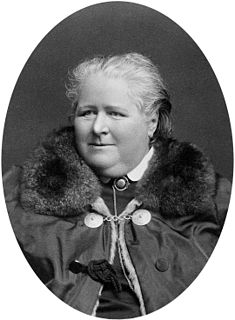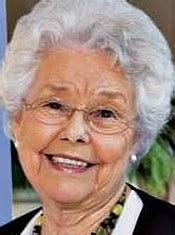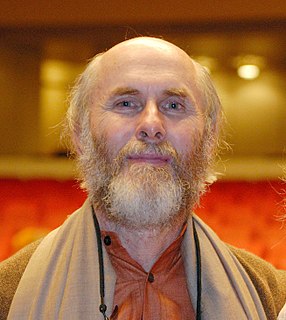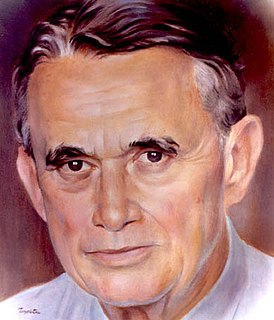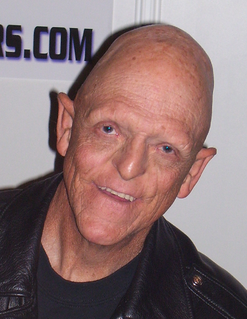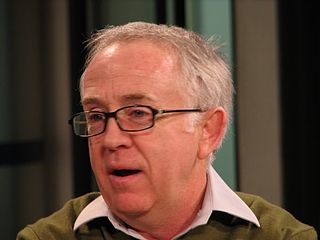Top 1200 Old Story Quotes & Sayings
Explore popular Old Story quotes.
Last updated on November 23, 2024.
It's hard to tell if anyone's interested in reading a serialized story. But it's interesting to put in a cliffhanger each week. That was popular in old comic strips. They'd write a weekend story different from the daily strip. So people follow one story day to day, and a separate story on weekends. If you read them, you think "I'll read two more." Then you're like "I gotta find out!" And you read 500 more.
I come from a long line of tellers: mesemondok, old Hungarian women who tell while sitting on wooden chairs with their plastic pocketbooks on their laps, their knees apart, their skirts touching the ground... and cuentistas, old Latina women who stand, robust of breast, hips wide, and cry out the story ranchera style. Both clans storytell in the plain voice of women who have lived blood and babies, bread and bones. For them, story is a medicine which strengthens and arights the individual and the community.
When I was nine years old, I wrote a short story called 'How to Build a Snowman,' from which no practical snowperson-crafting techniques could be gleaned. The story was an assignment for class and it featured a series of careful but meaningless instructions. Of course, the building of the snowman was a red herring.
The Universe story is the quintessence of reality. We perceive the story. We put it in our language, the birds put it in theirs, and the trees put it in theirs. We can read the story of the Universe in the trees. Everything tells the story of the Universe. The winds tell the story, literally, not just imaginatively. The story has its imprint everywhere, and that is why it is so important to know the story. If you do not know the story, in a sense you do not know yourself; you do not know anything.
When I first began to have the initial idea for 'Heartsease,' I just wrote a skeleton story; that is, I started her off as this young, bright 16-year-old and then added the events that occurred and where she and other characters fitted in, even writing 3 different endings, as I was not sure where Mary's story would lead to.
I think that people have to have a story. When you tell a story, most people are not good storytellers because they think it's about them. You have to make your story, whatever story it is you're telling, their story. So you have to get good at telling a story so they can identify themselves in your story.
I think that when I'm telling a story, I'm doing the best I can to tell the story as fully as I can, and if there are various fractures that happen in the story, then that's just the very thing that the story is as opposed to my looking for avenues of difference in one story. They just really do exist. For me, anyway.
The Work always leaves you with less of a story.
Who would you be without your story?
You never know until you inquire.
There is no story that is you or that leads to you.
Every story leads away from you.
Turn it around; undo it.
You are what exists before all stories.
You are what remains when the story is understood.
Americans are an "almost chosen people," which is meant to suggest that there are clear parallels, literal, theological and everything else, between the American story and the Old Testament story of Israel and then the broader story of the Christian church. It's OK to recognize the parallels. It's OK to invoke them. But, you have to keep that "almost" in front of the "chosen." You can't go all the way and say, "America is Israel, America is the Church." That's where I think patriotism shades into, what I call, the heresy of nationalism.
I came across an old story of mine that I'd written a decade ago. The main joke of the story is that a mother is telling her children about how she met their father online. The majority of memories the mother has all have to do with really funny links he sent her, a music download that she loved, etc. - and because of these superficial details she fell in love with the father. Reading it today, it's hardly a dystopian story; it's simply a realistic story about how people actually meet.
When I was eight years old, I played a story game with my younger brother and sister to help them fall asleep. The 'word-story game' was where they would choose a word and I would create a story. Acting and directing are similar to this game, where I am given the words then I fill in the life of the characters.
You have to decide what kind of story you're going to tell. For instance I would argue a movie like 'Toy Story 3,' which isn't realistic at all, is really emotional and involving. It just depends. I played this game called 'Superbrothers: Sword & Sworcery EP' for iPad that is totally old school 8-bit, which I found very moving.
I don't want to write things that people don't want to read. I would have no pleasure in producing something that sold 600 copies but that was considered very wonderful. I would prefer to sell 20,000 copies because the readers loved it. When I write books I don't actually think about the market in that way. I just tell myself the story. I don't think I'm talking to a 10-year-old boy or a six-year-old girl. I just write on the level the story seems to call for.
The life of a thinking man will probably be divided into two parts -- the first in which he desires to exterminate modern thinkers, and the second in which he desires to watch them exterminating each other. ... Suppose, for instance, there is an old story and a new skeptic who is skeptical of the story. We have only to wait a little while for a yet newer skeptic who is skeptical of the skeptic. He will probably find the old notion actually a help in his new notion. This process is an abstract truth applying to anything, apart from agreement or disagreement.
I like the idea all memory is fiction, that we have queued a couple of things in the back of our minds and when we call forth those memories, we are essentially filling in the blanks. We're basically telling ourselves a story, but that story changes based on how old we are, and what mood we're in, and if we've seen photographs recently. We trust other people to tell us the story of our lives before we can remember it, and usually that's our parents and usually it works, but obviously not always. And everybody's interpretation is going to be different.
When I was writing the book, I thought "Who wants to hear another story about some actor who lost his way?" But my story is a little unique in that I realized when I was 14 years old that I was different. I think a lot of gay people use drugs and alcohol to quell that fear and shame - especially people of my age.
Since a good part of my life has been wasted dealing with fools just like them, it's not worry I feel but weariness as I watch the approach of one more episode in the old, tired story of men who try to beat life, the smart ones who think they know it all and die with a look of surprise on their faces: at the final moment they always see the truth - they never really understood anything, never held anything in their hands. An old story, old and boring.
It's only a story, you say. So it is, and the rest of life with it - creation story, love story, horror, crime, the strange story of you and I. The alphabet of my DNA shapes certain words, but the story is not told. I have to tell it myself. What is it that I have to tell myself again and again? That there is always a new beginning, a different end. I can change the story. I am the story. Begin.
The Greeks used to use the same stories, the same mythology, time after time, different authors. There was no premium placed upon an original story, and indeed, Shakespeare likewise. A lot of people wrote plays about great kings. They didn't expect a brand-new story. It was what that new author made of the old story. It is probably the same now. We disguise it by inventing what seem to be new stories, but they're basically the same story anyway.
I don't beat at the details, but I do always keep in mind that anything that isn't A) moving the story forward or B) enlarging my understanding of the central characters has to be sacrificed. I have huge folders of details - research - with a story like Netherlands. Only a very small part of it gets used. The old iceberg analogy again.
Once upon a time, began the story of you.Many perilous, wonderful, harrowing, brilliant, delightful, profound things happened.And yet—the most exciting twists and best turns are yet to come. And it absolutely does not matter how old or young you are.Like a bright carpet of wonders, enjoy the unrolling of your story.
There are, occasionally, writers who are able to combine both story and style. They are, of course, the best. You get a spectacular view and you also get to look at it from the backseat of a chauffeur-driven Cadillac. In the field of fantasy, those writers able to combine story-as-narration with story-as-style are even rarer. But there are a few...the late Theodore Sturgeon, the early Ray Bradbury...and Richard Christian Matheson. A brilliant chip off the old block.
The scientific world, the materialistic world, the world of commerce, the world of business, the world of individualism, the world of capitalism, world of communism - all these worlds are the old story now. Where we think we exploit nature, we exploit people. Market rules, profit rules, money rules. We work for name, fame, power, money, profit. That's the old story.







